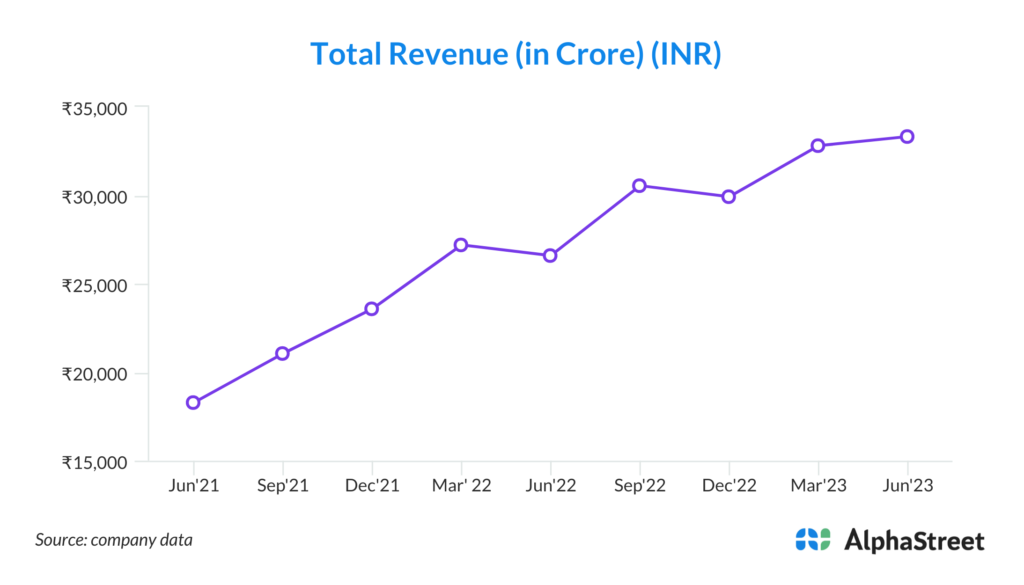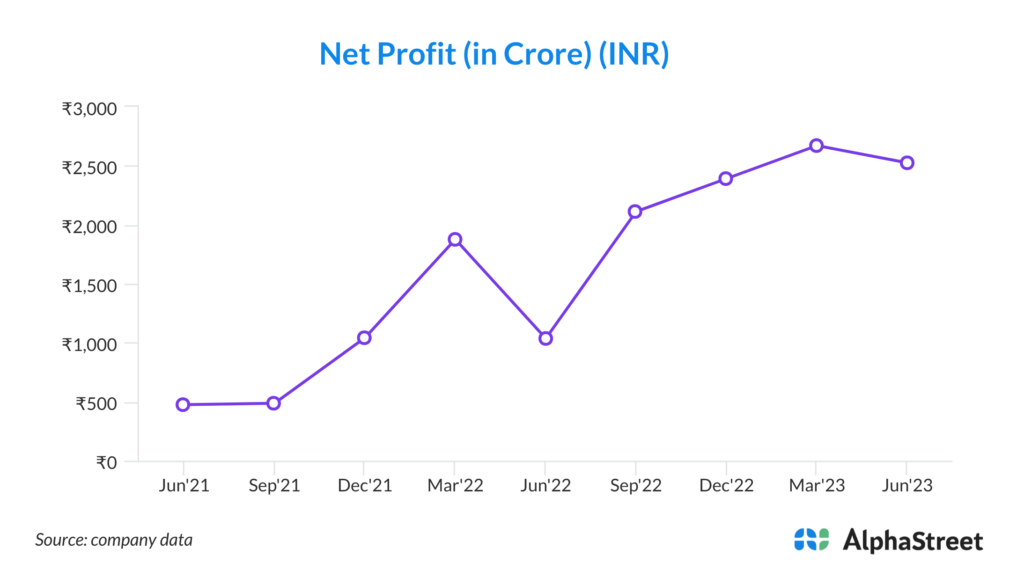Stock Data:
| Ticker | NSE: MARUTI |
| Exchange | NSE |
| Industry | AUTOMOBILES |
Price Performance:
| Last 5 Days | +2.91 % |
| YTD | +12.93 % |
| Last 12 Months | +8.82% |
Company Description:
Maruti Suzuki Ltd. is a renowned automobile manufacturer based in India. As the largest carmaker in the country, Maruti Suzuki has established itself as a market leader and a household name. With a diverse portfolio of high-quality and affordable vehicles, the company caters to a wide range of customers, from budget-conscious individuals to those seeking luxury and performance. Maruti Suzuki’s commitment to innovation, reliability, and customer satisfaction has propelled it to great success, consistently topping the sales charts in India. With a robust dealership network and a strong emphasis on technology and sustainability, Maruti Suzuki continues to drive the automotive industry forward.

Critical Success Factors:
1. Diverse Product Portfolio: Maruti Suzuki boasts a diverse product portfolio, having introduced three new models and four product refreshers during the financial year 2022-23. This showcases the company’s ability to cater to various customer segments and adapt to changing market trends.
2. Technological Advancements: The company has demonstrated its commitment to technological advancements by introducing Strong Hybrid Electric technologies and six-speed automatic transmission. These advancements enhance the performance and efficiency of their vehicles, attracting customers seeking advanced features.
3. Market Share Growth: Maruti Suzuki strengthened its position in the SUV segment with the successful launches of Brezza and Grand Vitara, leading to increased market share in this category. The strong bookings received for these models signify the company’s ability to command a larger volume in higher-priced segment vehicles.
4. Compliance with Regulations: Maruti Suzuki ensured that its entire portfolio complied with new regulations and norms, such as Corporate Average Fuel Economy (CAFE) norms and BSVI (phase 2) norms. This demonstrates the company’s commitment to sustainability and meeting regulatory requirements.
5. Manufacturing Flexibility: The company enhanced its manufacturing flexibility to accommodate market fluctuations, maximizing production volumes amidst the shortage of electronic components. This highlights Maruti Suzuki’s agility and ability to adapt to supply chain challenges effectively.
6. Customer Acceptance: Maruti Suzuki’s new models, including Brezza and Grand Vitara, received strong market response and garnered significant bookings. The excellent acceptance of these models can be attributed to the company’s ability to offer innovative features and cater to customer preferences, ensuring high customer satisfaction.

Key Challenges:
1. Semiconductor Shortage: Maruti Suzuki, like other automobile manufacturers, has been grappling with the global semiconductor shortage, which has adversely affected its production capacity and resulted in lower sales. The ongoing semiconductor supply constraints pose a risk to the company’s ability to meet customer demand and could impact its financial performance.
2. Increasing Raw Material Costs: Maruti Suzuki witnessed an increase in the raw material to sales ratio during the reported quarter. This indicates rising raw material costs, which can negatively impact the company’s profit margins if not effectively managed. Fluctuations in commodity prices, particularly steel, could further increase production costs and impact profitability.
3. Competitive Pressure: The automotive industry is highly competitive, and Maruti Suzuki faces intense competition from both domestic and international players. Rivalry in the SUV segment, where the company has been focusing its efforts, is particularly fierce. Sustaining market share and pricing competitiveness in the face of aggressive competition remains a concern for the company.
4. Dependence on Suppliers: Maruti Suzuki’s supply chain is vulnerable to disruptions caused by its suppliers. The shortage of electronic components experienced during the financial year impacted the company’s production volumes. Overdependence on specific suppliers or single-source suppliers can pose a risk to production continuity and increase the company’s vulnerability to supply chain disruptions.
5. Changing Customer Preferences: The evolving preferences and shifting market trends pose a risk to Maruti Suzuki’s product portfolio. While the company has introduced new models and technology features, changes in customer preferences towards electric vehicles (EVs) or other emerging trends may impact demand for conventional vehicles. Maruti Suzuki needs to adapt its offerings to align with evolving customer preferences to mitigate this risk.
6. Economic Uncertainty: The economic environment, both domestically and globally, can have a significant impact on the automotive industry and consumer demand. Factors such as GDP growth, inflation rates, and monetary policies can influence purchasing power and consumer sentiment. Economic uncertainties, such as fluctuating fuel prices or changes in government policies, pose risks to the demand for vehicles and may affect Maruti Suzuki’s sales and financial performance.
